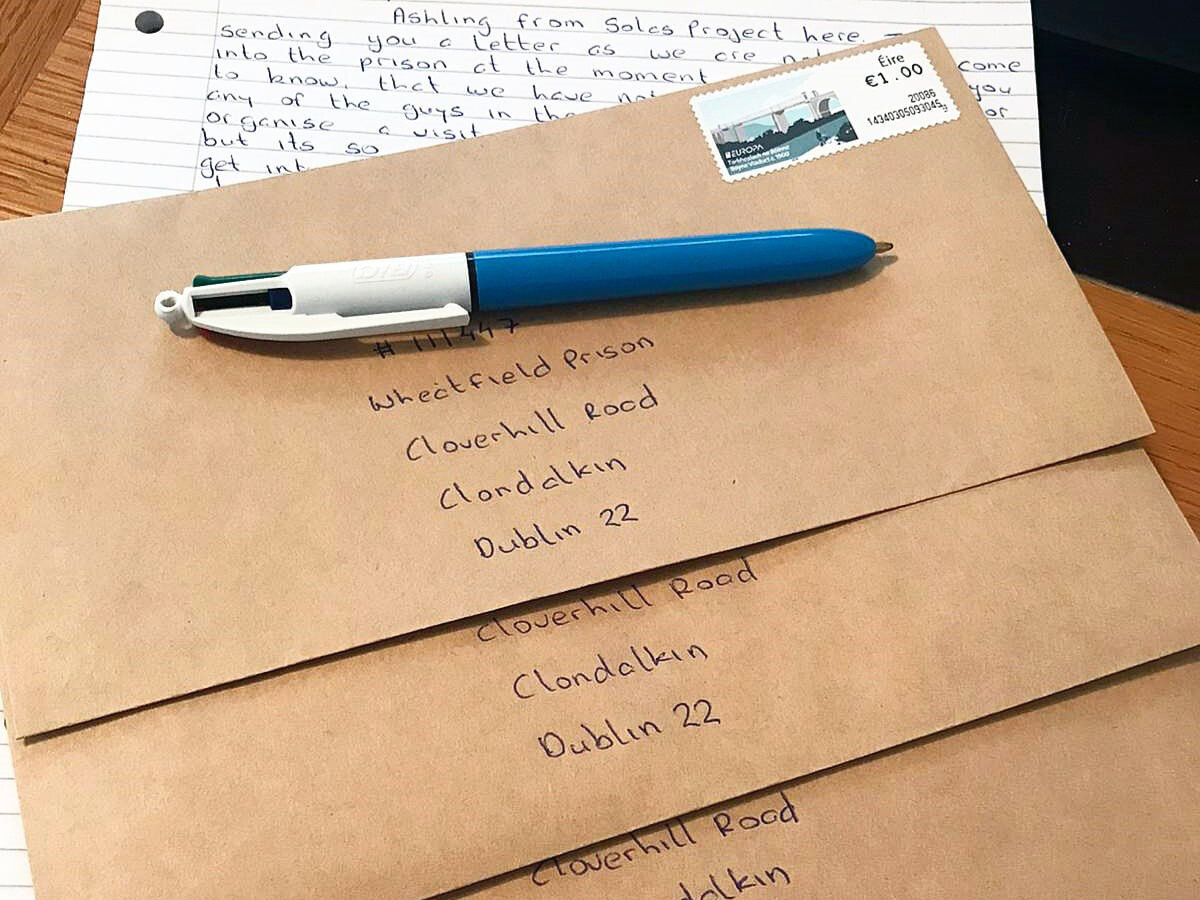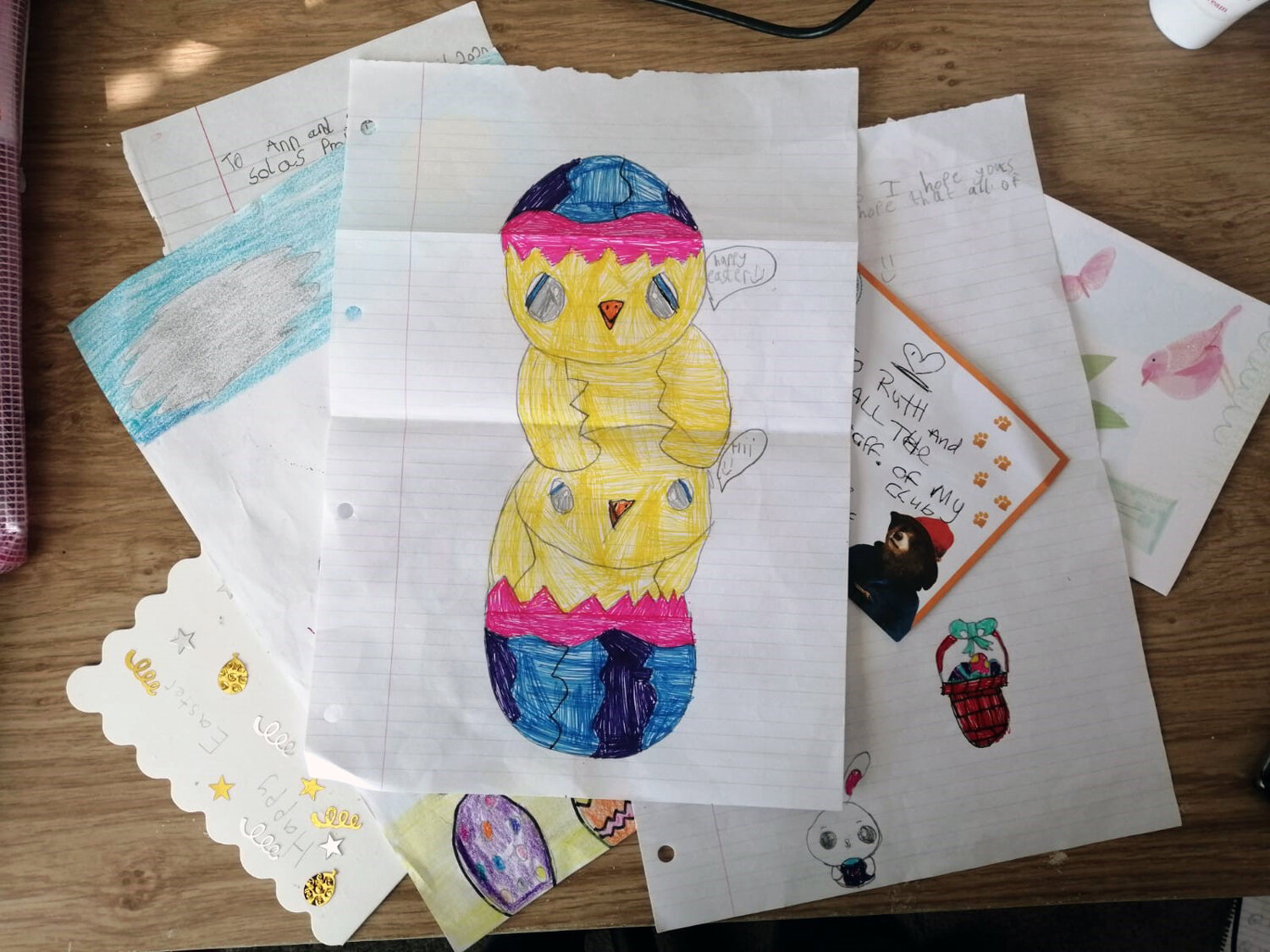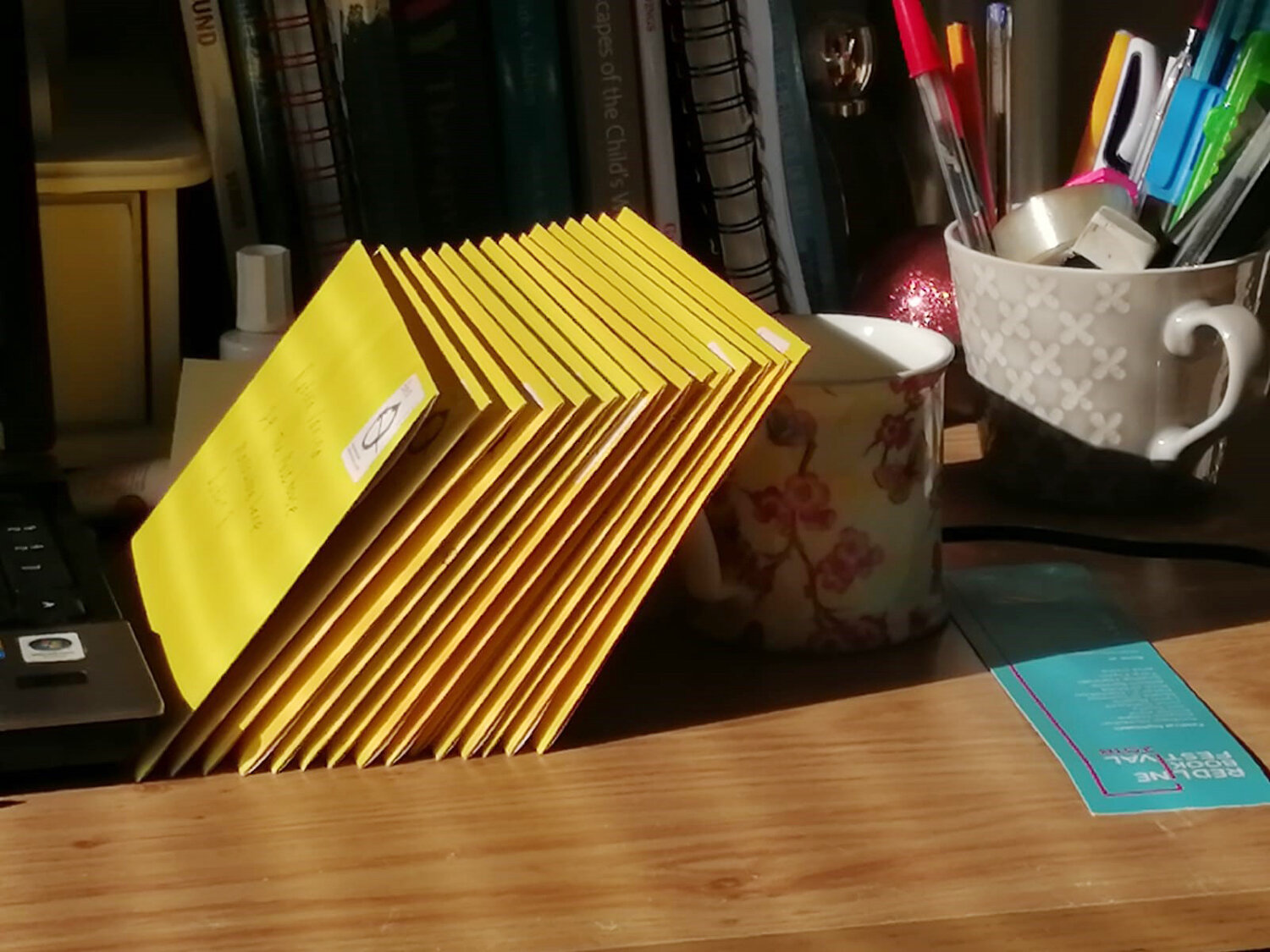Creating a Brighter Future
A new era for Solas Project in Dublin
(From the January - March 2021 issue of VOX)
On 1 December 2020, Amy Carey took over as the new CEO of the Solas Project in Dublin, a charity working to empower and support young people to reach their potential. VOX magazine’s editor Ruth Garvey-Williams caught up with Amy to find out how the charity has coped during the pandemic and what’s in store for 2021.
What are your thoughts on taking over the leadership of Solas Project?
I am excited and privileged to be entrusted with the organisation. I have worked as a volunteer since the early days and have been on staff since 2011. My predecessors Eddie, Graham and Salla each invested deeply into Solas Project creating the strong and innovative organisation that it is today. So I’ve inherited a great platform to start from. We have built a strong team and we can look forward to the next stage of growth. I am very thankful to be stepping into this role supported by such a talented team and I am looking forward to all 2021 has to bring.
What was 2020 like for Solas Project?
2020 was a challenging year but it highlighted afresh to me the passion, resilience and commitment of our staff team and our incredible army of volunteers and supporters.
During the first lockdown we had to shut down all face-to-face interactions but we maintained connection. It was a challenging few months but we tried to be as creative as we could, adapting our programmes to support young people in Dublin 8 through online mentoring, letter-writing, care packs, an art project and food deliveries.
As soon as we could, we started back with some of our programmes with a whole new set of protocols to keep everyone safe. Our summer projects ran outdoors and in September we re-started our after-school programmes providing food, homework support and activities four afternoons a week.
At times it is frustrating because it is difficult to make plans when things are constantly changing and new restrictions are brought in. However, we are so thankful to be able to be back meeting our young people face to face.
How has the pandemic impacted the communities you serve?
We recognise that Covid-19 has had a disproportionate impact on communities such as the ones we serve in inner city Dublin. One of the biggest impacts is the increasing educational divide and we probably won’t see the full implications of that for some time.
School closures were difficult everywhere but particularly where there is a high level of educational disadvantage such as in the areas where we work. Many parents have literacy issues and cannot support their children to learn at home. Added to that is the digital divide - not everyone has desktops or laptops. Many children were trying to study using their phones and did not have high quality Internet. Imagine trying to study for your leaving cert. on your phone?
“Children in these circumstances do not have their own bedrooms and cannot find a quiet space to study and learn. The closure of schools had a disproportionately negative impact on their education.”
In addition, many families we support are living in over-crowded conditions in blocks of flats. Children in these circumstances do not have their own bedrooms and cannot find a quiet space to study and learn. The closure of schools had a disproportionately negative impact on their education.
We know the economic impact is also likely to hit hard. Disadvantaged communities always suffer whenever there is a downturn in the economy as it is usually unskilled workers who lose their jobs first. We are already seeing that with some of our young people who had worked really hard to find employment losing their jobs. It is extremely difficult to find employment at the moment, especially for young people.
How did lockdown affect your ability to work in prisons?
Part of our work involves loving and supporting prisoners away from re-offending and towards a new life. This usually means going into Mountjoy and in Wheatfield Prisons but we were not able to do that. Instead we continued to write letters to prisoners and have seen the relationships strengthened. During April and May alone, our staff and volunteers wrote over 40 letters. It is quite insightful to see what people will tell you in their letters that they might not feel able to share in person.
Through his letters, one inmate revealed an interest in Irish history. “Looks like we have similar interests. I love history too. I loved it when I was in school learning about the Ardagh Chalice,” he wrote. [Ed note: the Ardagh Chalice is an 8th century Christian silver chalice discovered Co. Limerick in 1868 by two boys digging in a field. It is now on display in the National Museum.]
The team member writing to him said, “We had no idea that he had any interest in anything more than the loud person he pretends to be in the prison.” Now this inmate and his Solas pen pal discuss Irish history together.
In the six months before the lockdown, we had done a lot of training with young prisoners and trained a number of them as barbers. Two of these young men were moved into a lower security prison and they were able to set up their own barbershop using the training we had given them.
Our work also extends to those who have been released and, even though there have been extra challenges, we’ve ramped up our community support for young people coming out of prison.
So what’s in store for Solas Project during 2021?
At the moment we are going through a period of transition and restructuring. My hope for 2021 is to continue our on the ground work through our six programmes and also to start to develop a strategic plan for the next five years. There is huge scope for us to deepen the work we do and expand programmes both in terms of our geographical reach as well as the range of our youth work provision. We are looking to have more “drop in” services and targeted groups for different ages. In particular, we are looking at the major transitions that take place from primary to secondary school and the transition from secondary school into employment or further education. We have seen success in supporting young people to complete their leaving cert. but have found that often they struggle with figuring out what to do next.
“We want to support and empower our young people to reach their full potential, pulling out the gold that we see in each one of them and helping them to find opportunities to flourish.”
We see so much potential in the young people of our community and recognise that they face challenges and barriers those from more advantaged communities don’t encounter. We want to support and empower our young people to reach their full potential, pulling out the gold that we see in each one of them and helping them to find opportunities to flourish.
How can people support the work of Solas Project?
There are three main ways people can get involved. I would love for people to be praying for us, for our young people and our staff team, particularly throughout this period of transition.
The second is with financial support. Due to amazing generosity, we managed ok financially in 2020 but we would have concerns for 2021 if there is a significant economic downturn.
Thirdly, we are always looking for new volunteers. Our work relies heavily on volunteers for our after school programmes, mentoring, support for prisoners and skills development.
To find out more visit www.solasproject.ie or connect with the Solas Project on Facebook, Instagram and Twitter.




